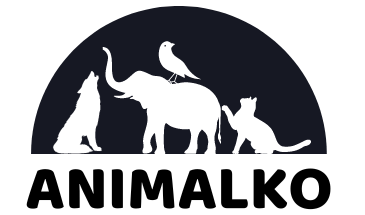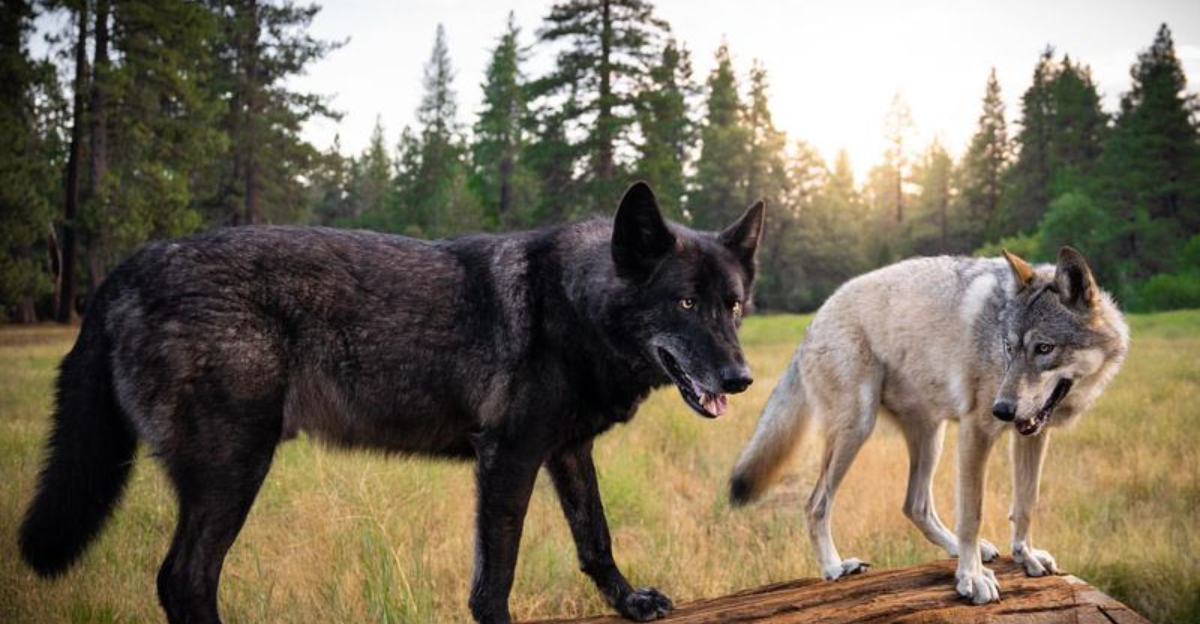Wolfdogs, a unique hybrid between wolves and domestic dogs, can be captivating yet challenging companions. While their majestic appearance and inherent intelligence draw many to consider them as pets, there are numerous factors to weigh before making such a commitment.
This article delves into the complexities of wolfdog ownership, offering balanced insights into both the potential drawbacks and appealing reasons to welcome one into your home.
From training challenges to the allure of their wild nature, these points aim to equip potential owners with the knowledge needed to make an informed decision.
1. Legal Restrictions
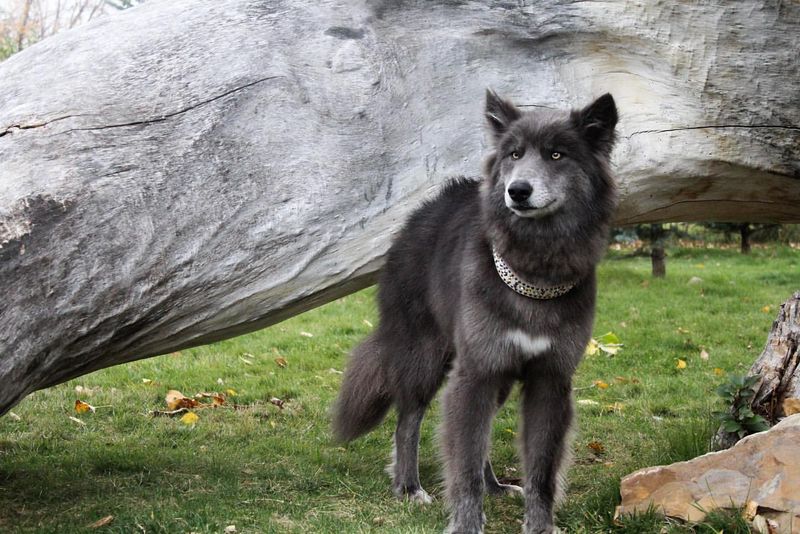
Owning a wolfdog often comes with legal hurdles that potential owners must navigate. Many regions have strict regulations or outright bans on wolfdog ownership, stemming from concerns over safety and the animals’ well-being.
These laws can vary significantly from one location to another, creating a complex landscape for prospective owners to understand. Ignorance of these regulations can lead to legal troubles, including fines or the forced removal of the animal from the home.
Therefore, it is imperative for anyone considering a wolfdog to thoroughly research the legal requirements in their area before proceeding. Consulting with local authorities or legal experts can provide clarity and help avoid any potential legal pitfalls associated with owning such a unique pet.
2. Training Challenges
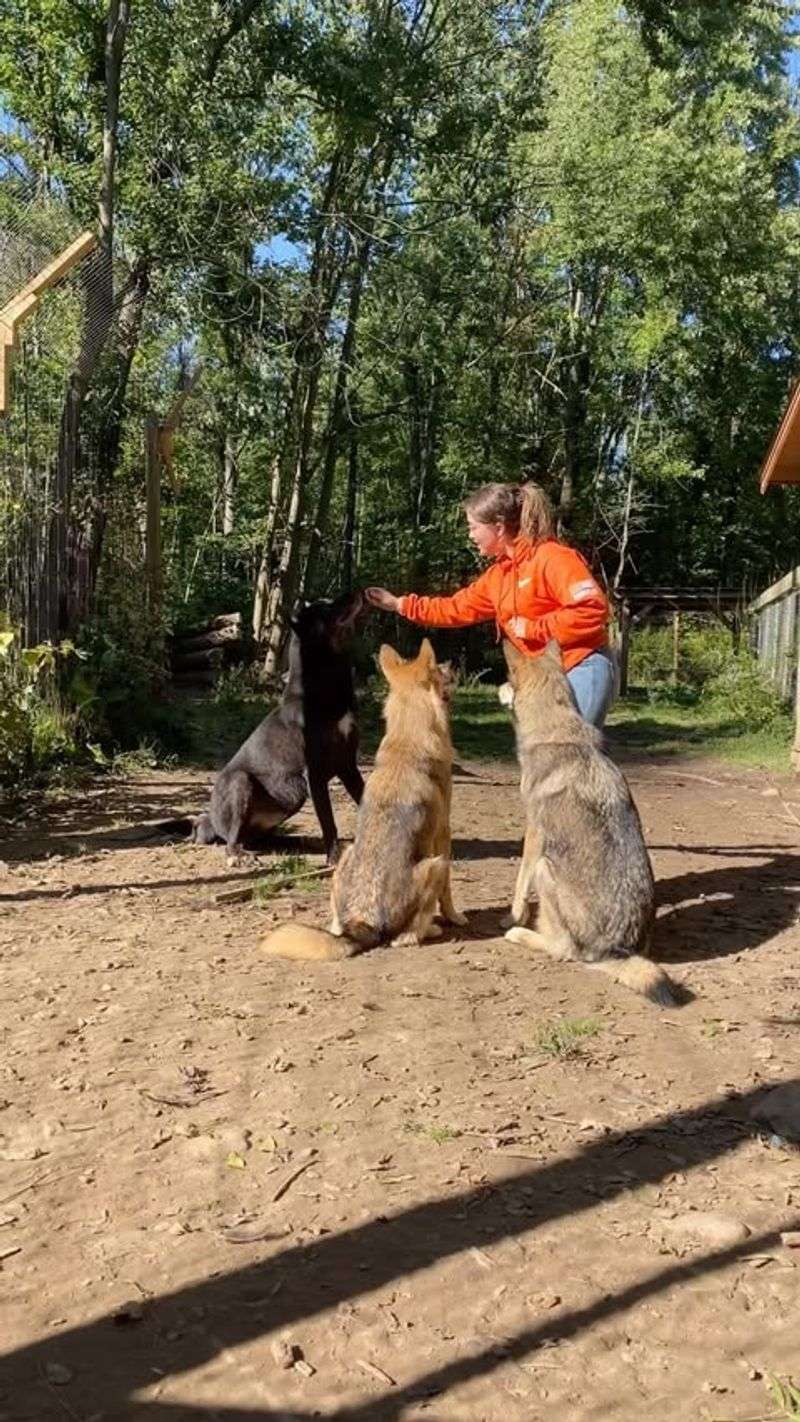
Training a wolfdog can be an arduous task, often requiring specialized knowledge and patience. These animals possess a high level of intelligence, but their independence can make obedience a struggle. Unlike typical domestic dogs, wolfdogs may not respond well to standard training techniques.
Their instinctual behaviors, inherited from their wolf ancestors, can lead to unpredictable reactions, making consistency crucial in training efforts. Owners often need to invest in professional training services, which can be costly and time-consuming.
Furthermore, the bond between a wolfdog and its owner is essential for successful training. Building trust through positive reinforcement and understanding their unique needs becomes vital. This commitment can be overwhelming for those not prepared for the challenges of managing such a strong-willed companion.
3. Space Requirements
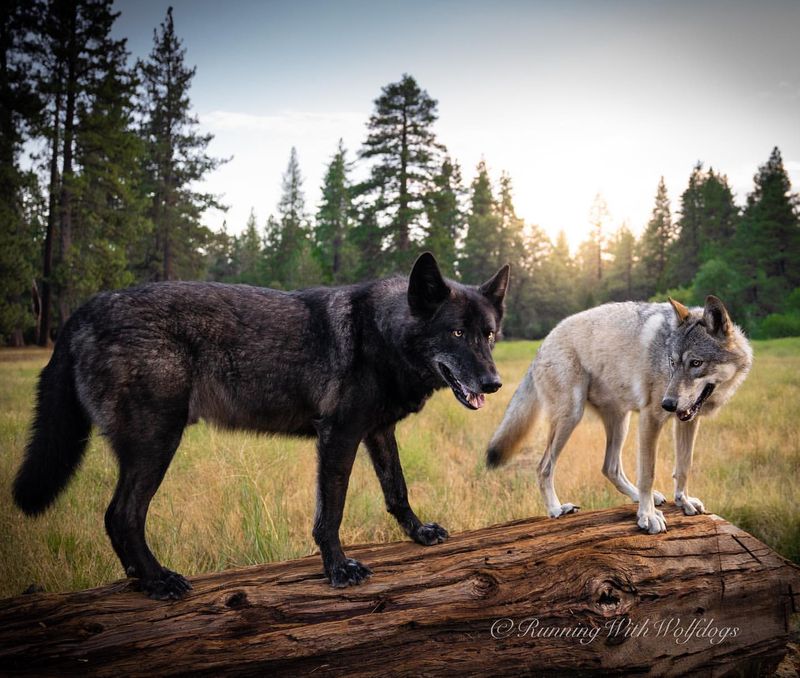
Wolfdogs require ample space to thrive, making them unsuitable for city living or small homes. These animals have high energy levels and need room for exercise to prevent destructive behaviors that can arise from boredom or confinement.
Owners should have access to large, secure outdoor areas where the wolfdog can roam and explore safely. This requirement can be a significant limitation for individuals living in urban environments or properties without adequate outdoor space.
Additionally, providing sufficient mental stimulation is crucial to their well-being. Engaging activities such as agility training or puzzle toys help satisfy their instincts and prevent restlessness. Prospective owners must evaluate their living situation to ensure it meets the demanding spatial and mental needs of a wolfdog.
4. Dietary Needs
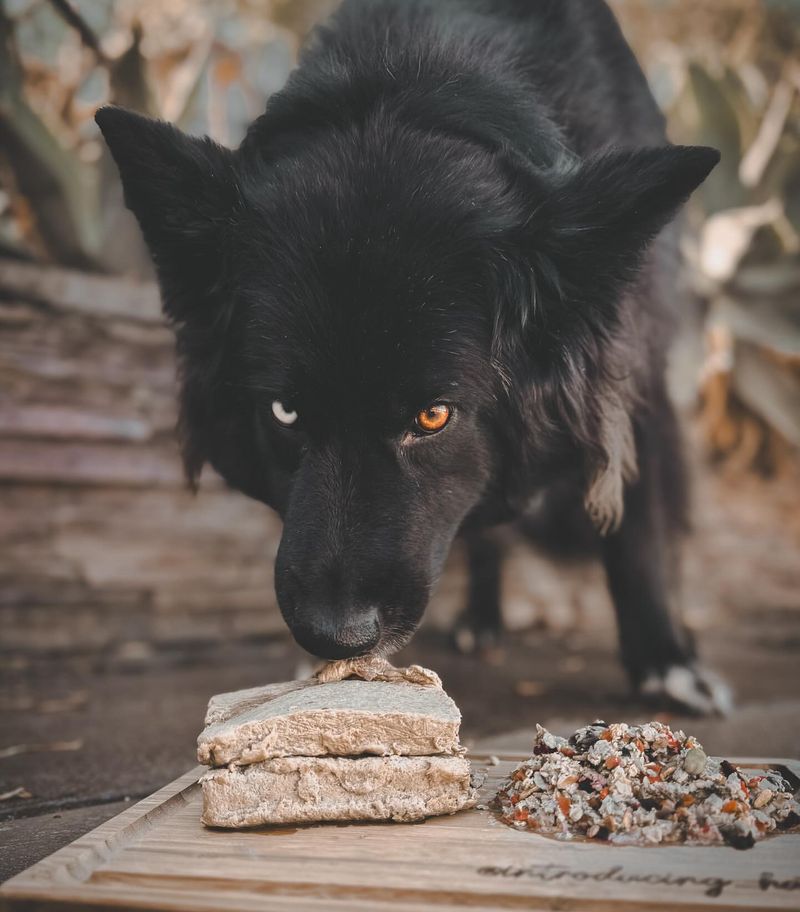
Feeding a wolfdog involves more than merely purchasing standard dog food from the local store. These hybrids often thrive on a raw meat diet, akin to their wild counterparts, which can be expensive and require careful planning.
Owners must ensure that the nutritional needs of their wolfdog are met, balancing proteins, fats, and essential vitamins. This dietary requirement not only impacts budget considerations but also demands time for meal preparation.
Furthermore, some wolfdogs may have specific dietary sensitivities or preferences, necessitating further customization of their meals. Understanding and accommodating these needs is vital to maintain their health and well-being, thus obligating owners to stay informed and adaptable regarding dietary practices.
5. Behavioral Unpredictability
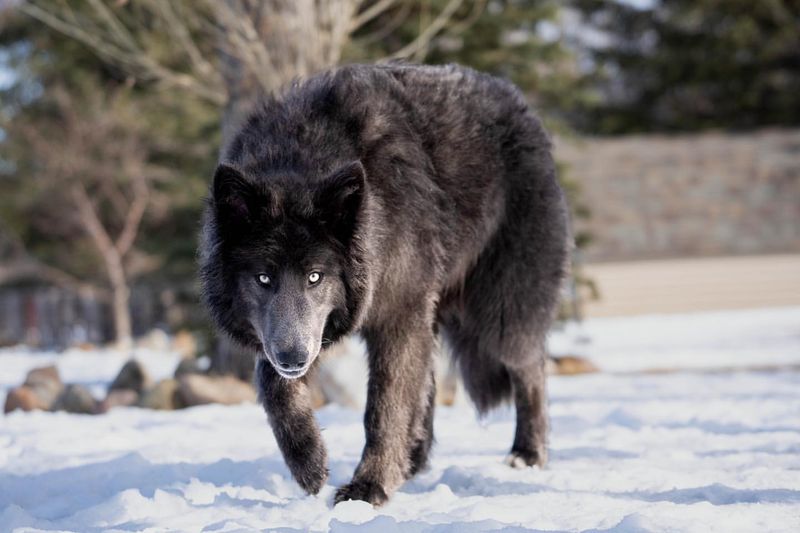
Behavioral unpredictability is a significant concern for wolfdog owners. These animals, due to their mixed genetics, can exhibit a wide range of temperaments, sometimes shifting from playful to aggressive with little warning.
This unpredictability can pose challenges in social environments, necessitating vigilant supervision during interactions with other animals and humans. The responsibility of ensuring safety falls heavily on the owner, who must be adept at reading the animal’s cues and responding appropriately.
Potential owners need to consider their ability to manage such behaviors, understanding that not all wolfdogs will fit neatly into family life. Professional behavioral assessments and ongoing training may be necessary to cultivate a safe and harmonious relationship between the wolfdog and its household.
6. Socialization Demands
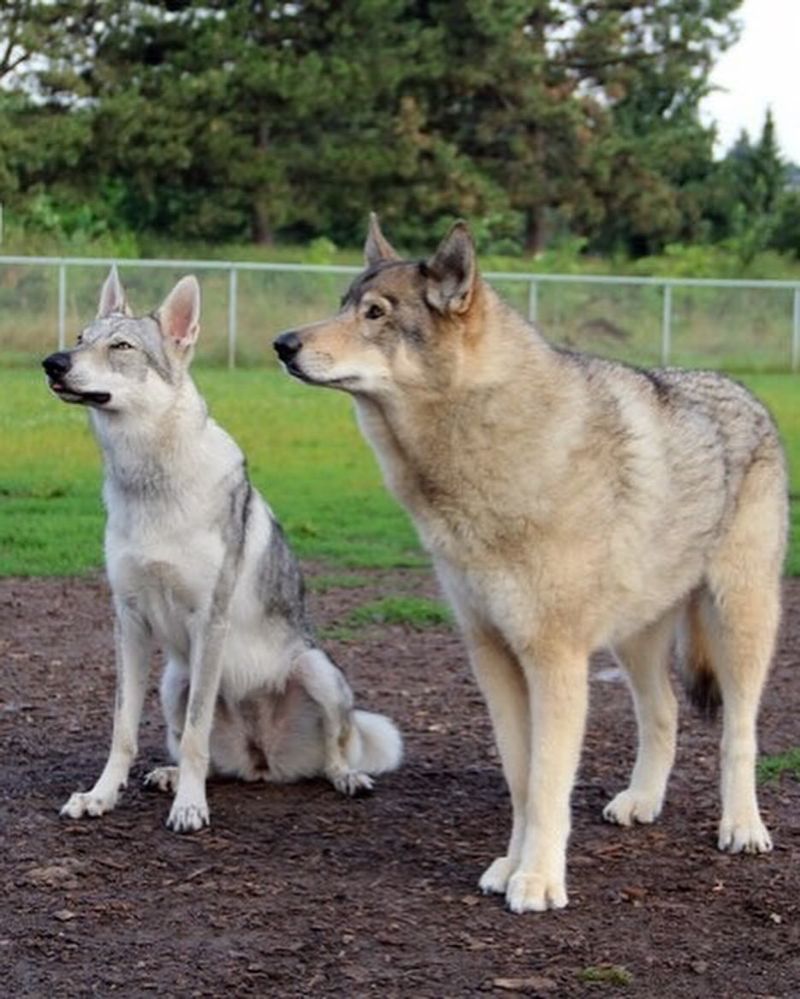
Socializing a wolfdog requires a well-thought-out plan and a considerable investment of time and effort. These animals need extensive exposure to different environments, people, and other pets to develop balanced social behaviors.
Failure to provide adequate socialization can result in fearfulness or aggression, potentially leading to dangerous situations. Owners must be proactive in arranging diverse social experiences from an early age, fostering positive interactions that encourage confidence and calmness.
The socialization process should be ongoing, adapting as the wolfdog matures and its social needs evolve. This continuous commitment demands patience, understanding, and a willingness to learn and adjust strategies to suit the unique temperament of the wolfdog.
7. Complex Healthcare Needs
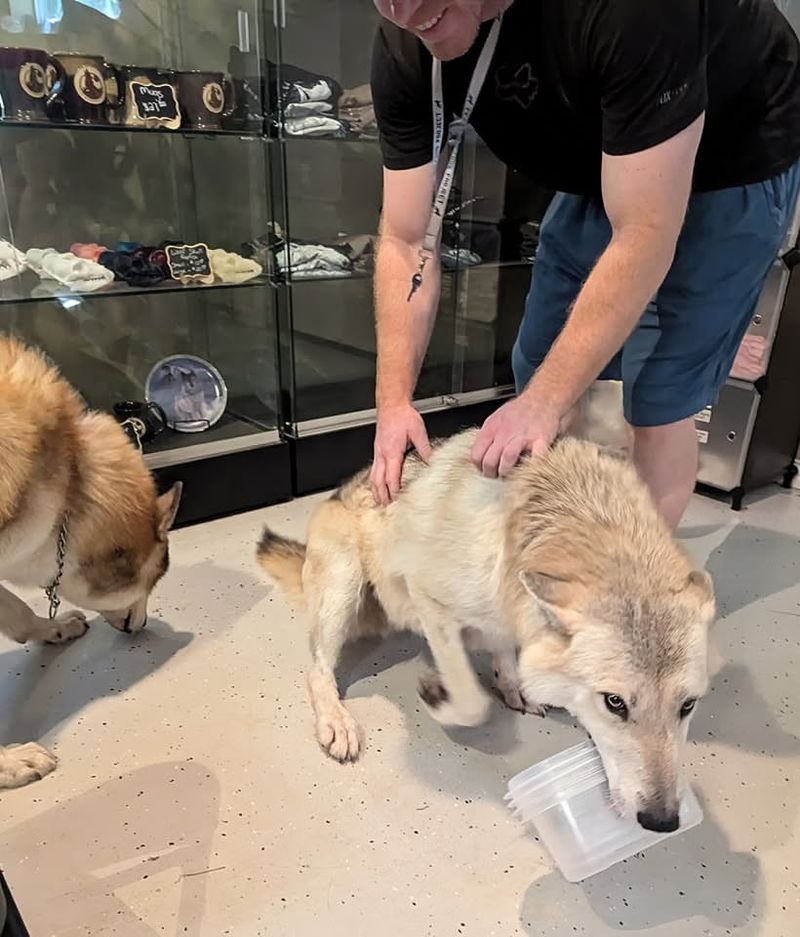
Healthcare for a wolfdog can be more complex compared to typical domestic dogs. These animals may have unique health challenges due to their hybrid status, requiring vets with specialized knowledge and experience.
Routine veterinary care may not suffice, as wolfdogs might encounter uncommon health issues that necessitate further investigation and tailored medical treatments. Finding a veterinarian who understands these specific needs can be challenging and potentially costly.
Additionally, preventative care, such as vaccinations and parasite control, must be approached with care, considering the wolfdog’s distinct physiology. Owners bear the responsibility of ensuring their wolfdog receives appropriate medical attention, making informed decisions about their healthcare, and being prepared for potential emergencies.
8. High Maintenance Commitment
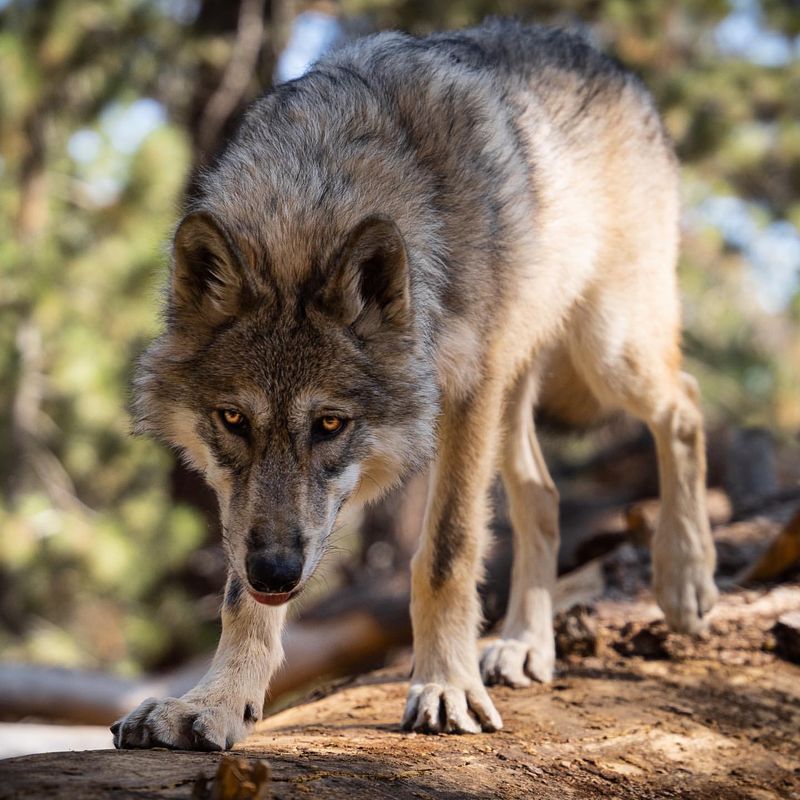
Owning a wolfdog demands a high level of maintenance commitment from their owners. These animals require regular grooming to manage their thick coats, which can shed extensively, especially during seasonal changes.
Beyond grooming, wolfdogs need continuous mental and physical stimulation to keep them engaged and healthy. This involves planning activities, training sessions, and social outings, each demanding time and energy from the owner.
The overall commitment extends to understanding and meeting their unique needs, from dietary requirements to healthcare. Potential owners must evaluate whether they can dedicate the necessary resources and attention to maintain a balanced and fulfilling life for their wolfdog, ensuring the animal’s well-being and happiness.
9. But Oh, The Unparalleled Companionship…
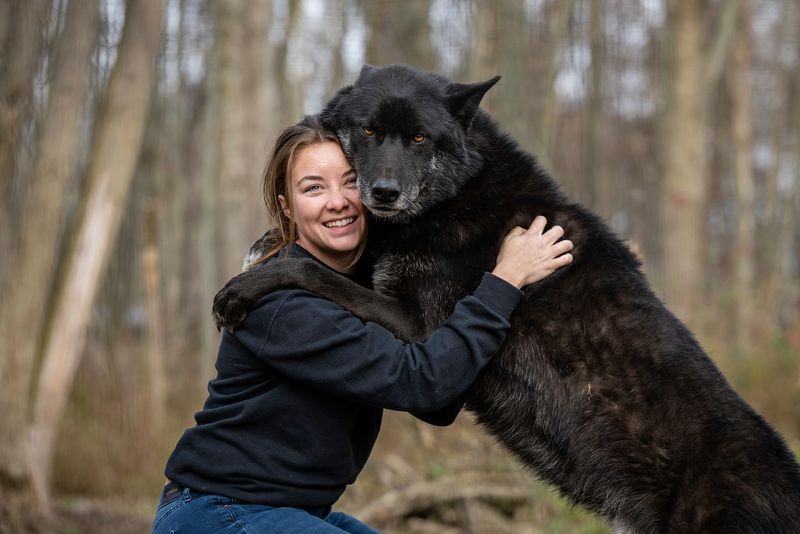
Wolfdogs are known for forming deep bonds with their owners. This connection often goes beyond what traditional pets offer. Living with a wolfdog is a partnership where mutual understanding and respect flourish. The loyalty of a wolfdog is something truly unique.
It can become a cornerstone of your daily life, providing companionship that feels almost like a conversation with a close friend. This is not just a pet but a companion that walks beside you through life’s adventures.
Wolfdogs are observant and sensitive to their owner’s emotions. They can be comforting presences, intuitive and aware of your needs. The emotional connection can be intensely rewarding, offering solace during challenging times and amplifying joy during happy moments.
10. And Their Unique Aesthetic Appeal
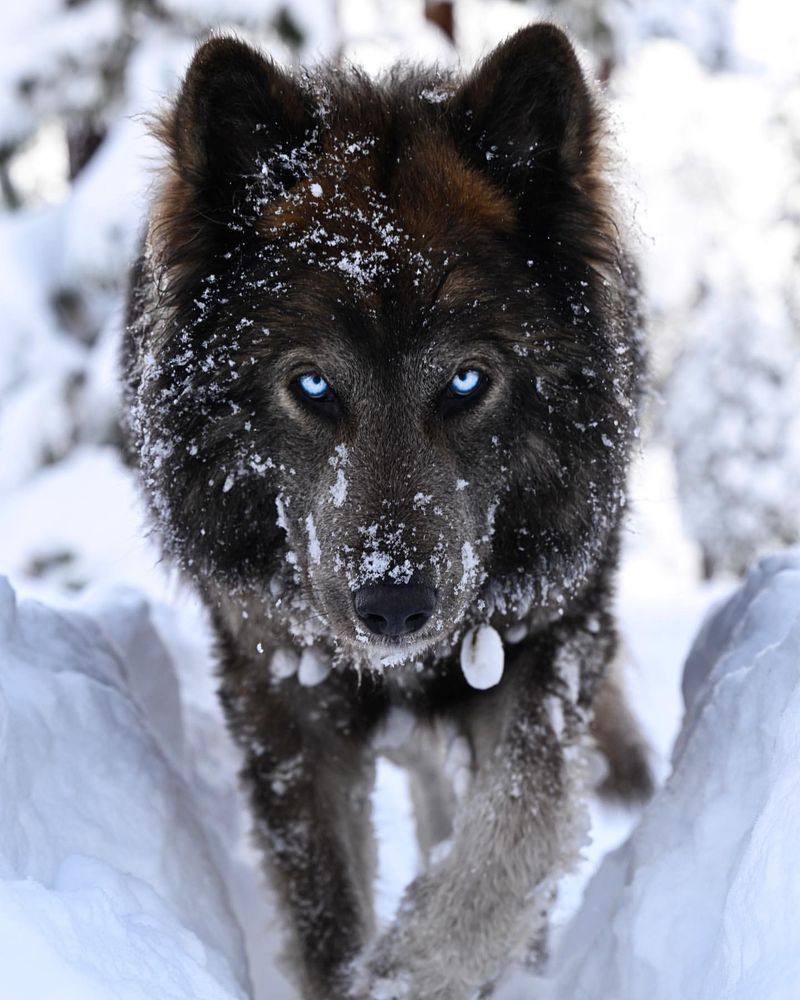
The beauty of a wolfdog is truly stunning, embodying the majestic allure of the wild. With their striking eyes and impressive stature, they often look like something out of a fairy tale.
Owning a wolfdog means having a pet that turns heads and invites admiration. Each day spent with a wolfdog is like living beside a piece of nature’s art. Their unique appearance not only attracts onlookers but also inspires a deeper appreciation of the natural world.
This aesthetic appeal can spark conversations and connections with fellow animal lovers, enhancing your social circle while adding a touch of the wild to your everyday life.
11. They’re Intelligent And Engaging
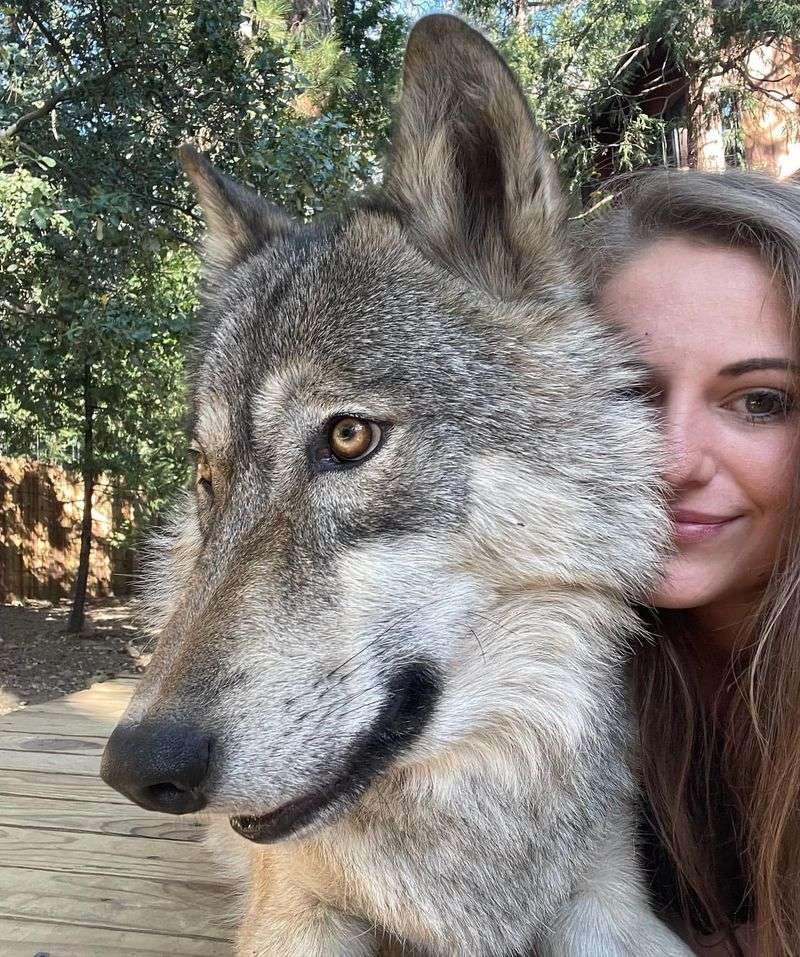
Wolfdogs are highly intelligent animals, requiring mental stimulation and engagement that challenges both the pet and the owner. This intelligence makes them fascinating companions, as they thrive on learning new commands and tricks.
Training a wolfdog is not just about obedience but building a relationship based on mutual respect and understanding. This process is rewarding as you watch your wolfdog master complex tasks and respond to your cues.
Their intelligence encourages creative problem-solving and keeps you engaged as an owner, transforming routine interactions into opportunities for growth. This dynamic interaction ensures that life with a wolfdog is never dull, offering constant mental enrichment.
12. How Can We Resist Such Adventure Companions
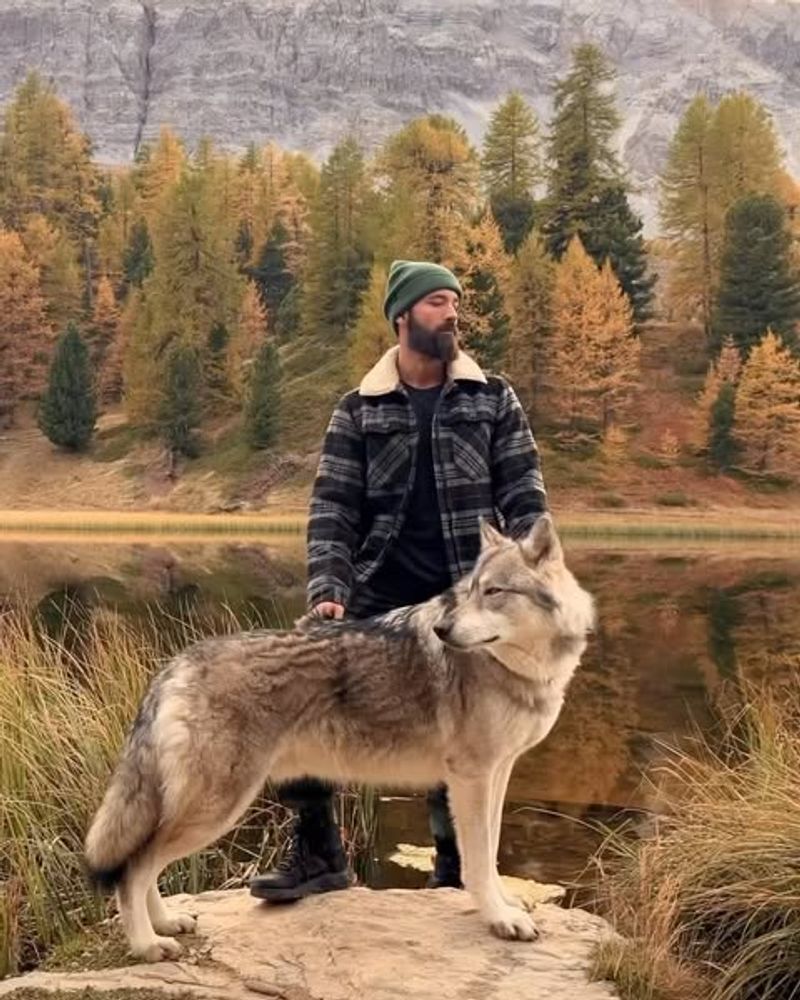
For those who love the great outdoors, wolfdogs make excellent adventure companions. Their boundless energy and love for exploration mirror the wild landscapes they resemble. With a wolfdog by your side, every hike becomes an expedition, every walk an exploration.
They’re perfect partners for those who thrive on outdoor activities and enjoy the thrill of discovering new paths and terrains. Wolfdogs love to explore, making them ideal for adventurous souls seeking a kindred spirit.
Whether you’re camping, hiking, or simply exploring local parks, their enthusiasm and stamina enhance every outdoor experience, creating memories that last a lifetime.
13. Their Strong Pack Instincts Are Admirable
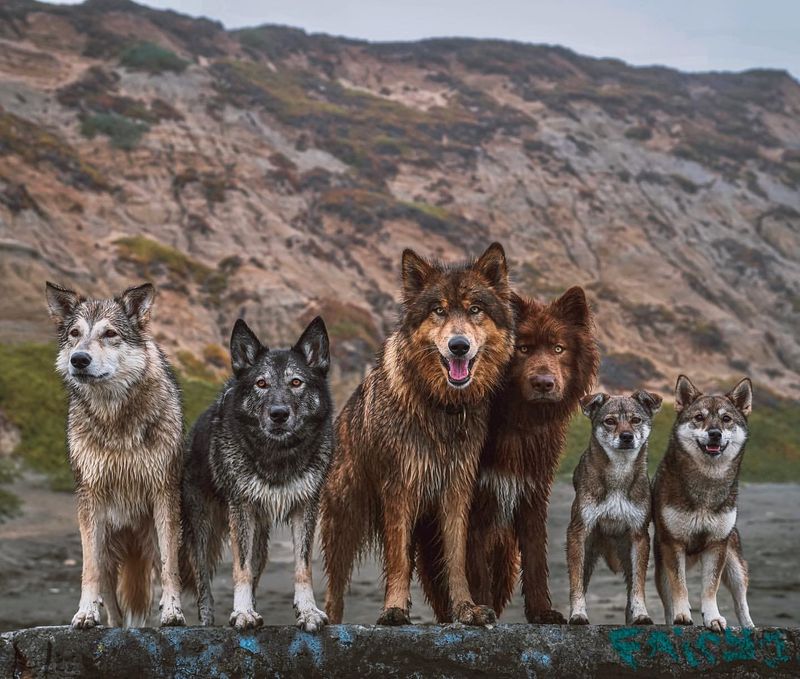
Wolfdogs have innate pack instincts, providing a unique opportunity to observe and participate in their social dynamics. This behavior is fascinating for anyone interested in animal psychology and social structures.
Owning more than one wolfdog can create a small pack that exhibits interesting behaviors, from hierarchy establishment to cooperative play. This increases the complexity and richness of the interaction between the animals and their human family.
These pack instincts can also strengthen the bond with their owner, who they often see as part of their pack. Understanding and nurturing this instinctive behavior can lead to a deeper, more fulfilling relationship with your wolfdog.
14. They Guard The Home Like Noone Else
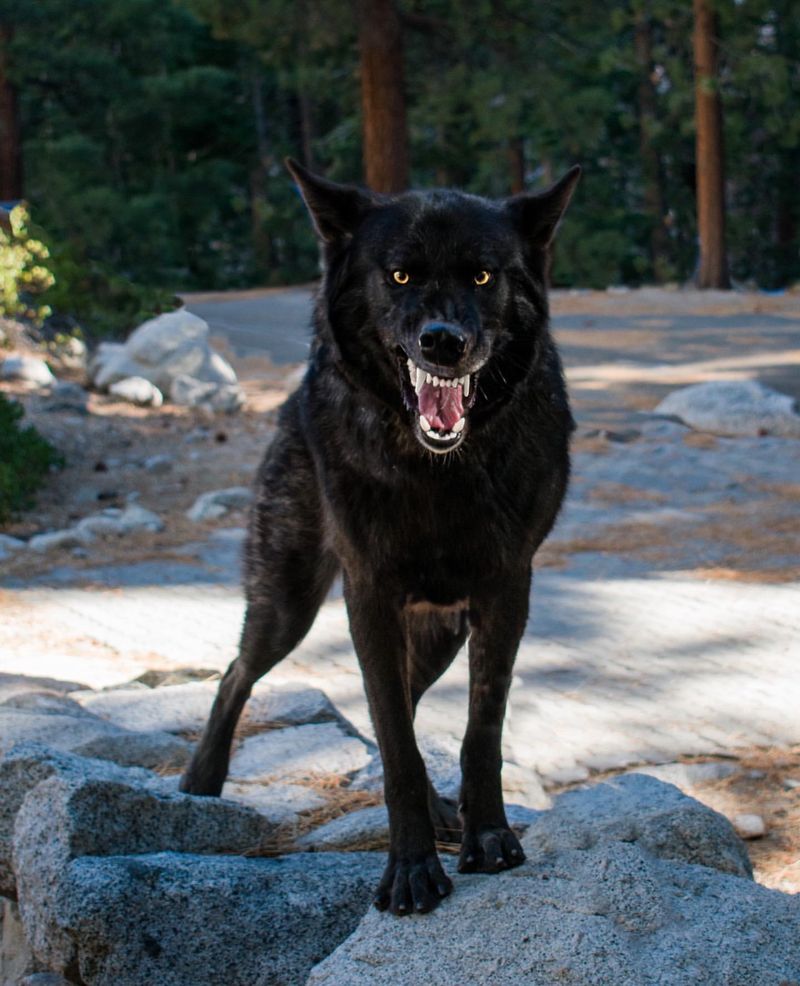
Wolfdogs possess strong protective instincts, making them excellent guardians of the home. Their presence can deter unwelcome visitors, providing a sense of security and peace of mind. These animals are naturally vigilant, always aware of their surroundings.
This trait is beneficial for those who appreciate an alert companion who can distinguish between friend and foe. Their protective nature is balanced with their loyalty and affection for their family, ensuring that while they guard their home, they remain loving and gentle with those they trust.
This combination makes them not only reliable protectors but also cherished family members.
15. Unique Connection To Nature
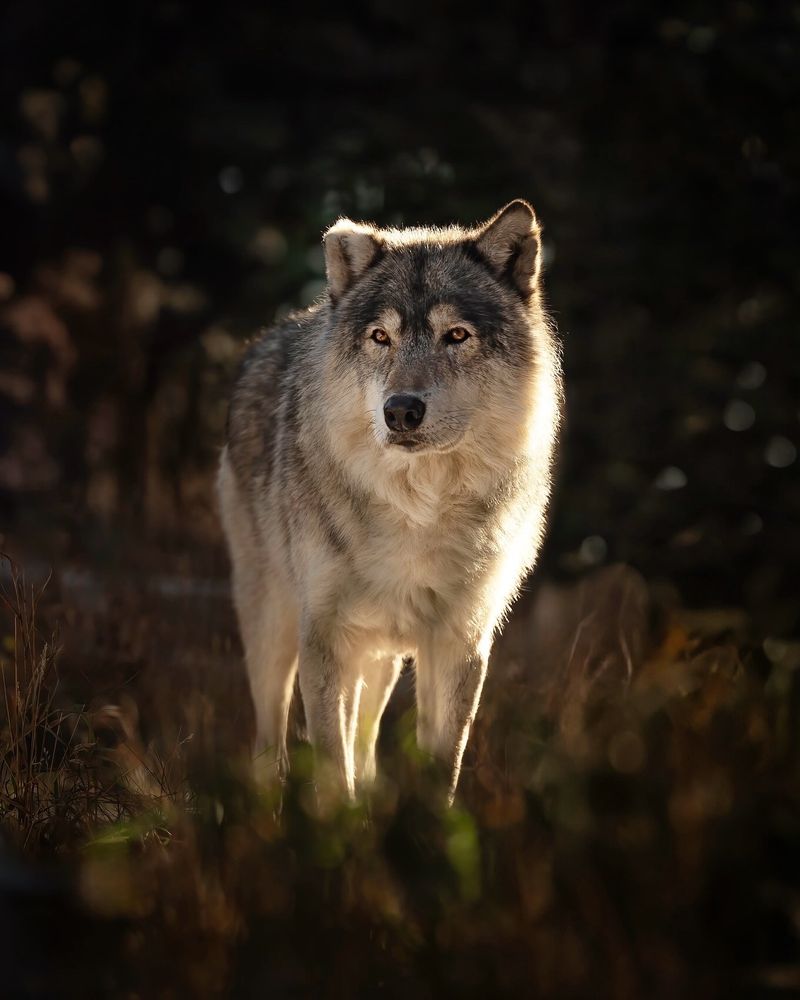
Owning a wolfdog can foster a deeper connection to the natural world. Their wild lineage reminds us of the beauty and majesty of nature, encouraging a lifestyle that respects and cherishes our environment.
These animals bring the essence of the wild into our homes, prompting us to appreciate the simplicity and wonder of the natural world. This connection can be therapeutic, offering a sense of balance and peace.
A wolfdog’s presence can inspire more outdoor activities, leading to a healthier, more active lifestyle. They serve as a constant reminder of the world beyond urban living, urging us to explore and respect nature.
16. Cultural And Historical Significance
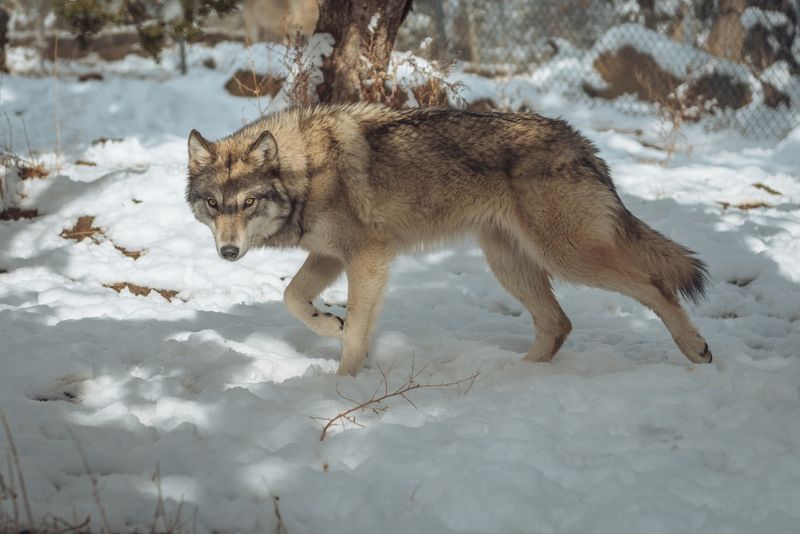
Wolfdogs hold a special place in various cultures and histories, often seen as symbols of strength, loyalty, and freedom. Owning one can connect you to these rich traditions and stories.
Many indigenous cultures revered wolves as spiritual guides, and having a wolfdog can offer a glimpse into these ancient beliefs and practices. This cultural connection can enrich your understanding and appreciation of different heritages.
Being part of this legacy means more than just having a pet; it’s about participating in a narrative that spans centuries. This historical significance can add depth and meaning to your relationship with your wolfdog, making each day a part of a grand, ongoing story.
